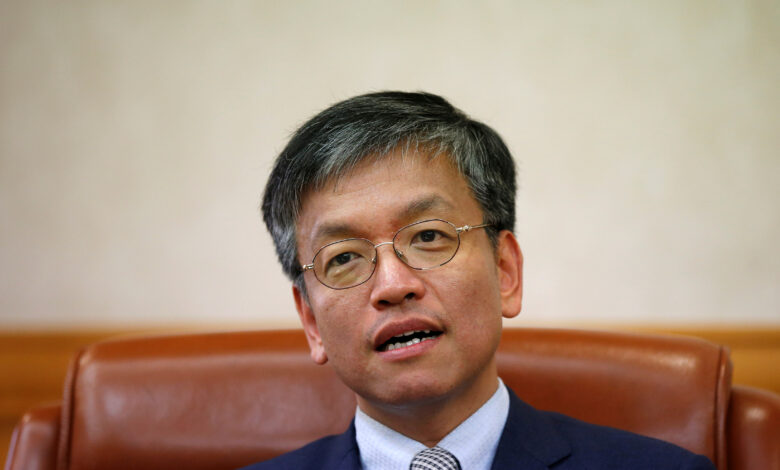Economic leaders of South Korea, Japan, China say FX volatility is a risk

ECONOMIC leaders of South Korea, Japan and China said on Friday (May 3) heightened foreign exchange market volatility was one of the risk factors that could affect regional growth prospects in the near term.
“The regional growth strengthened in 2023, driven by robust domestic demand. The region is expected to grow at a faster pace in 2024, supported by domestic demand, the recovering investment and export, and firm consumer spending,” they said in a joint statement.
“Risks could affect Asean+3 prospects in the near term, including geopolitical tensions, a spike in global commodity prices and transportation costs, and a slowdown in the growth of major trading partners, as well as heightened foreign exchange market volatility driven by negative spillovers from external factors,” they said.
The finance ministers and central bank governors of the three countries met on the sidelines of the annual Asian Development Bank meeting held in the Georgian capital Tbilisi.
Last month, finance leaders from the US, Japan and South Korea agreed to “consult closely” on foreign exchange markets in their first trilateral meeting, nodding to concern by Tokyo and Seoul over their currencies’ recent sharp declines.
Earlier this week, Japanese authorities were suspected of intervening in the currency market to prop up the yen, after it fell to the weaker side of 160 per US dollar, its weakest level since 1990.
A NEWSLETTER FOR YOU

Asean Business
Business insights centering on South-east Asia’s fast-growing economies.
South Korean authorities also intervened to curb weakness in the won recently, after the currency hit a psychological figure of 1,400 per US dollar, a 17-month low.
Later in the day, finance ministers and central bank chiefs of Asean+3 – which groups the 10-member Association of South-east Asian Nations (Asean) and Japan, China and South Korea – repeated in their statement that foreign exchange market volatility was among the risk factors affecting the region.
At the meeting, South Korean minister Choi Sang-mok said member countries should monitor risk factors, such as an increase in FX volatility, in a collective manner.
Japanese finance minister Shunichi Suzuki said at a post-meeting press conference that concerns about volatility in the foreign exchange market were expressed at the Asean+3 meeting, as mentioned in the statement.
A stronger US dollar tends to tighten global financial conditions, weakens global trade and makes it more difficult for countries that borrowed in the US currency to service their debt, a problem often acutely felt by emerging market economies.
The statement also said that the Asian economic leaders “view that monetary policy should remain relatively tight as necessary in many member economies to ensure inflation expectations are firmly anchored in view of the continued upside risks to inflation”.
“Inflation is forecast to continue moderating but disinflation would be gradual, especially with core inflation, as domestic demand remains robust,” it said.
On the Chiang Mai Initiative Multilateralisation (CMIM), the Asean+3 group’s multilateral currency swap network set up in 2000 for uses during times of crisis, the leaders discussed various financing structures to enhance its effectiveness. They also agreed on a transition to a paid-in capital structure with the aim of narrowing down options by 2025.
They endorsed the establishment of the Rapid Financing Facility, a new lending facility complementing the CMIM. REUTERS





